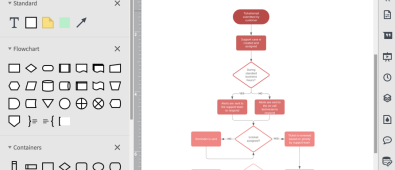Jenna completed a CHFI course and applied for the role of a computer forensic investigator with a government agency. However, within a year, Jenna realised that even though she got her dream job that pays her well and satisfies her professionally, she is not able to excel at it. She does everything a normal employee is supposed to do, yet, she is not able to fulfil the expectation of her superiors and is thus, lacking results that can help her move ahead and rise in her career. Clearly, there is a difference between doing your job and excelling at it. This article will discuss 5 tips that you can follow with all your heart to help yourself bloom in your career, whatever it may be.
- Go the extra mile
Just completing what you are told to do is not enough to get your employer’s attention and accolades. You never get brownie points for doing your job because you are being paid for it. You get brownie points for doing something extra in your task, taking initiatives and volunteering for new projects. Going the extra mile is one of the most important characteristics that employers notice, appreciate and reward with all their might.
- Possess soft skills:
Surely, skills and certifications play their key role in showcasing your ability to perform a certain job, but having a CEH certification will not make you a great employee. What makes you great is the kind of soft skills you have. Organisations are a small social environment where members help and benefit from each other and how well you thrive in that environment solely depends on how well you communicate and the quality of relationships you create with your colleagues.
- Be a problem solver:
Being part of the problem is very easy and enticing. But don’t make that mistake as it sets an image about you, and that too, an undesirable one. In times of crisis, no one wants to be told about what they did wrong or what should have been done to avoid the problem. What people need to hear at such times is the solution. Most work environments will push you to engage in cribbing and blaming instead of suggesting solutions. Be conscious of this factor and give concrete solutions so that you are seen as a problem-solver and a valuable part of any team.
- Don’t engage in office politics:
Your workplace is not a place for politics. Sadly, many employees resort to this measure, whether out of pleasure or out of necessity. Even though sometimes it may seem like joining gossip circles and office politics is a good and easy way to get accepted among colleagues, it can always end up backstabbing you. Moreover, in a professional work setting, such an employee is not regarded as very reliable and fair when it comes to making work-related decisions.
- Leadership qualities:
A true leader always helps their team with all the resources they have, without the fear of being overpowered. Whenever a situation demands you to teach what you know to someone else who is new at your workplace, you will probably be tempted to hold back. Insecurity arising from the fact that every co-worker is your competition is absolutely unnecessary. Always see the bigger picture, and realise the fact that your co-workers are never your competition, but they are the strongest allies in your organisation. If your organisation starts fighting among itself, it can kiss any external competitive edge goodbye.
Apart from these five important qualities, you should also have the ability to take any criticism constructively, stand by your commitments, remain positive in adverse situations and work on your personal development. Having all these characteristics in your job, irrespective of its nature will surely make you excel at it.



